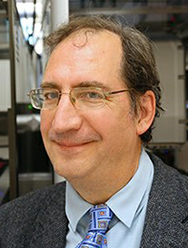Roth’s research to create innovative tools for neuroscientists and discover potential targets for therapeutics has earned him one of the highest honors in the field of medicine.

Dr. Bryan Roth, MD, PhD, the Michael Hooker Distinguished Professor of Protein Therapeutics and Translational Proteomics in the Department of Pharmacology, has been elected to the Institute of Medicine (IOM). Election to the IOM is considered one of the highest honors in the fields of health and medicine and recognizes individuals who have demonstrated outstanding professional achievement and commitment to service.
“Roth…is a world-renowned scientist best known for creating an innovative scientific method that allows neuroscientists to manipulate and study brain circuits in health and disease.
Roth’s method, called DREADD – Designer Receptor Exclusively Activated by a Designer Drug – offers scientists an innovative way to study the basic biological mechanisms that play major roles in many conditions and diseases such as autism, addiction, depression, schizophrenia, Alzheimer’s disease, Parkinson’s disease, and various forms of cancer. Roth first published his findings on DREADD in the Proceedings of the National Academy of Sciences in 2007. Since then, his paper has been cited by hundreds of scientists working to create better treatments for neuropsychiatric disorders and other diseases.
Roth, who also serves as Director of the National Institute of Mental Health Psychoactive Drug Screening Program, has used his technologies to identify brain regions and drug targets essential for creating safe and effective medications to treat obesity and many other disorders.
Roth, who is also a Professor in the UNC Eshelman School of Pharmacy, also developed and validated a computer model that can predict drug side effects before a drug is given to people. The method, established in collaboration with researchers at the University of California at San Francisco, compares the chemical structures of all known drugs and their binding sites in human cells to make the predictions. These technologies are now widely used in both early and late stage drug discovery and development.”
(except from SOM News by Mark Derewicz, “UNC’s Bryan Roth elected to Institute of Medicine”)
